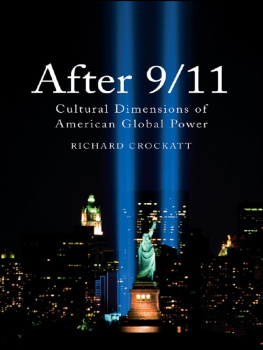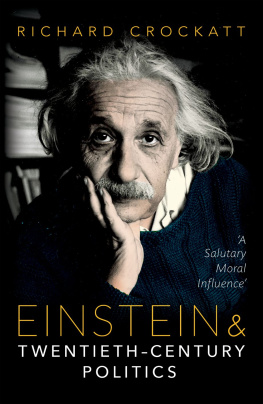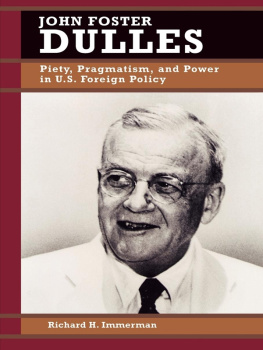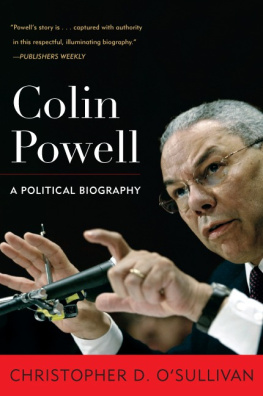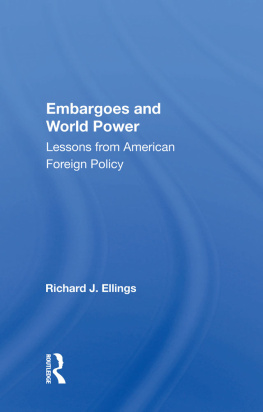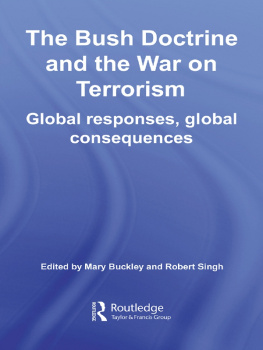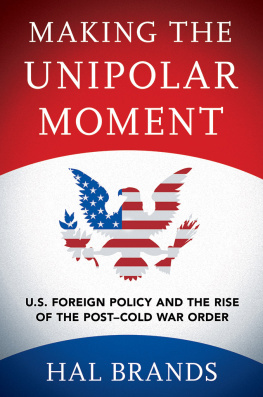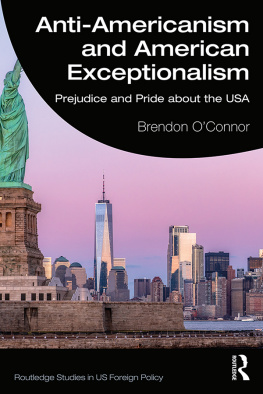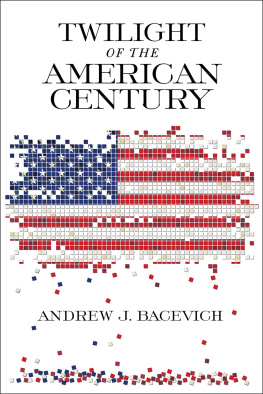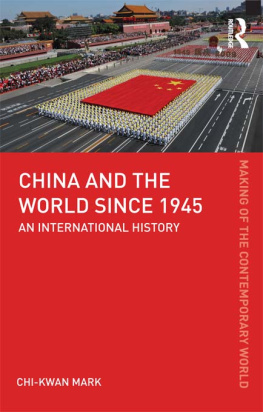After 9/11
This is an incisive and readable analysis of American foreign policy and international politics since the end of the Cold War. The book is organized around two key themes: the role of culture in international politics and the changing nature of American power. It argues that cultural perspective is vital to an understanding of recent American foreign policy and also the reactions of others to America.
Taking a distinctive and challenging viewpoint on Samuel Huntingtons clash of civilizations thesis, Richard Crockatt endorses the claim that culture and values have become central battleground of international relations since the end of the Cold War.
In a series of linked studies, this book examines such themes as
- Americas relations with the Islamic world, with particular focus on the war in Iraq and its aftermath
- the rhetoric of Bushs speeches
- the history and rebirth of Americanism
- ideas of global order and the rise and fall of neoconservatism.
Combining an international relations approach with an American studies perspective, After 9/11 is a much-needed balanced account of the most significant political questions of the twenty-first century.
Richard Crockatt is Professor of American History and Head of the School of American Studies at the University of East Anglia, where he specializes in US foreign policy and contemporary international relations. He is author of The Fifty Years War (Routledge, 1995) and America Embattled (Routledge, 2003).
First published 2007
by Routledge
2 Park Square, Milton Park, Abingdon, Oxon OX14 4RN
Simultaneously published in the USA and Canada
by Routledge
270 Madison Avenue, New York, NY 10016
Routledge is an imprint of the Taylor & Francis Group, an informa business
This edition published in the Taylor & Francis e-Library, 2007.
To purchase your own copy of this or any of Taylor & Francis or Routledges collection of thousands of eBooks please go to www.eBookstore.tandf.co.uk.
2007 Richard Crockatt
All rights reserved. No part of this book may be reprinted or reproduced or utilized in any form or by any electronic, mechanical, or other means, now known or hereafter invented, including photocopying and recording, or in any information storage or retrieval system, without permission in writing from the publishers.
British Library Cataloguing-in-Publication Data
A catalogue record for this book is available from the British Library
Library of Congress Cataloging-in-Publication Data
Crockatt, Richard.
After 9/11 : cultural dimensions of American global power / Richard Crockatt.
p. cm.
Includes bibliographical references and index. [etc.]
1. United statesForeign relations2001. 2. Politics and culture. 3. NationalismUnited States. 4. United StatesForeign public opinion. 5. World politics1989-I. Title. II. Title: After nine-eleven.
JZ1480.C76 2007
303.48'273dc222006039493
ISBN 0-203-95693-1 Master e-book ISBN
ISBN 978-0-415-39284-6 (hbk)
ISBN 978-0-415-39285-3 (pbk)
ISBN 978-0-203-95693-9 (ebk)
To my father
John L. Crockatt
Acknowledgements
Many institutions and individuals have helped in the making of this book. All but one of the chapters began life as lectures, and the reactions of audiences have helped greatly in the redrafting for publication. I am grateful to the following institutions for the opportunity to present my work: the Royal Institute of International Affairs, Chatham House; the University of Luxembourg (where I was privileged to be present at one of a series of conferences celebrating the founding of the institution); the Department of American Studies, University of Birmingham; the Rothermere America Institute, Oxford University; the Centre for International Studies, Cambridge University; the Mershon Centre, Ohio State University; the Public Affairs Forum, University of New Orleans; the Department of History, Rice University, Texas; the University of Trento; the University of Bologna, Forli; Oxford Brookes University; the Institute for the Study of the Americas, University of London; and last, but by no means least, the University of East Anglia which, as always, has provided me with a most supportive setting in which to teach and research. Special thanks to the American Studies Research Seminar and all my colleagues.
Certain individuals have read and commented on one or more of the chapters, either as editors of collections of essays or simply as interested colleagues. I am most grateful to them all for giving their time and their expertise: Chris Bigsby, David Ellwood, SergioFabbrini, Stephanie Lawson, Lee Marsden, Brendon OConnor, Mario Del Pero, and Nicola Pratt. For support, conversation, and insights I would also like to thank Gnter Bischof, Alexander Stephan, and Roger Thompson. Many thanks to Ellen Berg for the loan of a book at a crucial moment. Successive years of students in my MA course on American Interventions have proved a great source of energy and ideas. Conversation over the years with my wife Julia, especially about the Middle East, has been essential to my attempts to make sense of contemporary international politics. Needless to say, no blame attaches to any of the above for any shortcomings in this book. I am indebted finally to my father, to whom this book is dedicated, for unstinting support and encouragement over the years.
I am grateful to Greenwood Press, Intellect (publishers of the European Journal of American Culture), and Routledge (Taylor & Francis) for permission to reprint revised versions of essays previously published as follows:
Chapter 1 Anti-Americanism and the Clash of Civilizations, in Brendon OConnor and Martin Griffiths (eds) The Rise of Anti-Americanism (Routledge, 2006), pp. 12139.
Chapter 3 No Common Ground? Islam, Anti-Americanism and the United States, European Journal of American Culture, 23, no. 2 (2004), pp. 12542.
Chapter 4 Americanism: A Short History, in B. OConnor (ed.) (under the title of Americanism as a Source of Anti-Americanism), Anti-Americanism: Historical Perspectives, vol. 2, Greenwood Press, 2007.
Chapter 5 Whats the Big Idea? Models of Global Order in the Post-Cold War Era, in Sergio Fabbrini (ed.) The United States Contested: American Unilateralism and European Discontent (Routledge, 2006), pp. 6991.
Introduction
In the summer of 2006 the Guardian (London) published a brief letter which spoke volumes about attitudes in certain British circles towards the United States. The writer referred to an advertisement by a British university for a lectureship in American thought and culture and invited the reader to share his view that this was a laughable notion, indeed a contradiction in terms. America, the correspondent assumes we will agree, has no thought or culture.
One can take it that the letter-writer was not a deep student of the United States and also that he was opposed to everything the Bush administration stood for. In fact the letter gathers up a whole bundle of implications to produce a composite image of the United States as crude, undeveloped, and anti-intellectual yet also powerful, dangerous and very right-wing. How, the letterwriter seems to be saying, could a country with whose policies one disagrees so profoundly possibly have a culture worth admiring? How could it have any culture at all? How could a country which elected George W. Bush, the very antithesis of the philosopher king, have any thought worthy of consideration? Perhaps also the letter-writer was congratulating himself on the conclusion that he wouldnt have to exert any effort to understand America because there was really nothing to understand.

